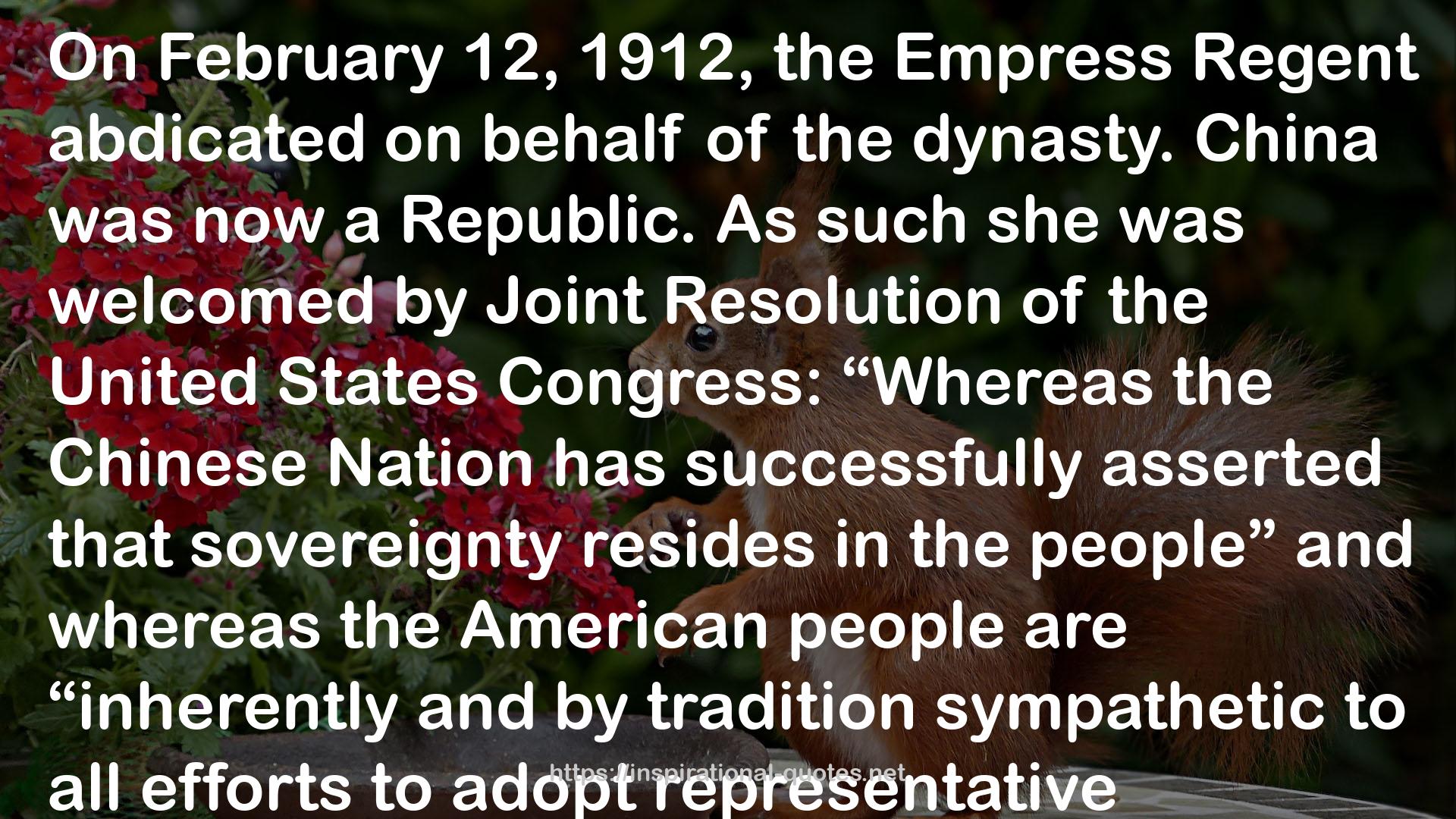" On February 12, 1912, the Empress Regent abdicated on behalf of the dynasty. China was now a Republic. As such she was welcomed by Joint Resolution of the United States Congress: “Whereas the Chinese Nation has successfully asserted that sovereignty resides in the people” and whereas the American people are “inherently and by tradition sympathetic to all efforts to adopt representative government,” therefore the United States “congratulates the people of China on their assumption of the powers, duties and responsibilities of self-government” in the hope that under a republican form of government “…the happiness of the Chinese people will be secure and the progress of the country insured.” It was not to be that simple. Yuan Shih-kai remained in control of north China, which he withheld from accession to the Republican regime. He maneuvered and waited. Lacking united support or firm authority or a reliable military arm, Sun Yat-sen could not prevail. More negotiations ensued with unavoidable result. On March 12, 1912, Dr. Sun retired as President in favor of Yuan Shih-kai, who reestablished the Government at Peking. In this unstable mongrel resolution China’s modern age began. "
― Barbara W. Tuchman , Stilwell and the American Experience in China, 1911-45
